Description
Living loving is a work whose most important subject is love. The author of the book, Dr. Leo Buscalia, believes so much in love and its importance in human life, and by providing vivid, happy and effective examples, creates a belief in the constructive power of love in the reader that even for serious and gloomy readers in approval The importance of love does not remain empty.
He teaches you that if you love people sincerely, they will love you too, and this is the most necessary and useful science that every human being must learn to become human.
He believes that your happiness depends on how you feel about people, and this depends on your words, behavior and thoughts, and fortunately all this is at your disposal.
What a beautiful part of life with love:
Says Nikos Kazantzakis: “The ideal teacher is one who builds a bridge for himself and invites his students to cross it, and when he opens the way for them, he happily overturns them to make them his own. “Build bridges, encourage.”
The lectures given in this book are an example of these bridges. These are just ideas – thoughts and emotions that have been exchanged between me and my listeners. These statements are made with the belief that they may be accepted, praised, praised, rejected or ignored.
I am very pleased to have shared these views with a group, and I am proud that thousands of people have listened to me with enthusiasm. These words are a sign of ten years of exciting life, with mental growth and fertility, and shared joy with others.
When I go back, I find no reason to regret. I am sure that, for better or worse, other events await me, and I am determined to continue building these bridges.
Dr. Buscalia is a professor in the Department of Education at the University of Southern California, California. Through his lectures, tapes, and numerous books, he has gained a large following inside and outside the United States.
Buscalia has given several rounds of “Love” (How to Learn Life) classes at the University of Southern California because of her deep knowledge and extensive experience of life and its manifestations.
The book “Love” is the result of communication and exchange with students who participated in “Love” classes.
The main thesis is that love is learnable, and that everyone can and should make love. Buscalia has left a deep impression on his listeners and readers by giving information and experiences about life and how to live through his teaching, lectures and writings.
He is a lively, energetic, lively and professional man who loves himself, his life and the people with whom he has direct and indirect contact in any way, and always tries to establish a healthy, sincere and close relationship with them.
He is living and building the future. Buscalia focuses on both the material aspects (enjoying the benefits of life and solidarity with people) and the spiritual, and seeks to gain a deep understanding of both.
The contents of the list below are points that the author pays attention to and emphasizes from the beginning to the end of the book.
Living loving
These statements, as they are repeatedly mentioned, are not a new phenomenon or a new discovery, but small and vital issues that we face every day, every hour, and every moment, but to We do not care about it and we skip it.
1) Despite their racial, cultural and religious differences, all human beings share some needs with each other, including the need for love, kindness and friendship.
2) Every human being, apart from potential talents, has infinite and endless abilities that can be fertilized and flourished with the right education.
3) Self-satisfaction, self-value and self-esteem, accepting and honoring the uniqueness and return to the true “self” are vital factors in the foundation and cohesion of a healthy personality.
4) Forming a family and growing up in its loving arms and having the love of parents is, according to Buscalia, the highest and most important human need. The statistics presented by the author show the fact that all the increasing psychological distress is due to the feeling of loneliness and being away from the caressing family.
Another shocking fact that the author reveals in the book is that the people of the West, despite having civilization-advanced technology and increasing success in all scientific and economic fields, are still trapped in intense emotional-emotional issues and They are deep. A problem that plagues even the most backward nations in the world today.
By reading the book, the reader comes to the conclusion that love is an urgent, vital and universal need, the crystallization of which creates prosperity and creativity, and its lack leads to corruption and destruction. Live with love and in love to understand and enjoy the true meaning of life.
I would also like to thank Ms. Bloureh Hafezi, who encouraged me in this constructive work, and the tireless and sincere cooperation of Dr. Jan Gharib, who accepted the effort to edit a part of the book, and Mr. Fereydoun Moshiri.
Living loving
Turandakht Tamadon (Maliki)
Many thanks to Mr. Webster, who defines foreword as follows: “The preface opens the way to the book.” It is a pleasure for me to have been given the opportunity many times to pave the way for my writer friend’s friend, Mr. Buscalia, with pen and language.
I have previously written on occasion: “Buscalia is a man with excellent human aspects, a teacher-student-writer-singer and listener, and of all these he seems to be the most obvious example of the teaching job he has chosen for himself. Leo teaches extravagance, warmth, and intimacy, and above all, he always sets an example in this: His words have the message: “If you listen carefully, I will prove to you how precious life is.” “And it is precious.”
For Leo, whose goal is to “guide” and educate his students of all classes and ages, the lecture hall, the living room space, or the beach are all classrooms. At the University of Southern California, Buscalia has been named “Outstanding Professor of the Year” several times, and there is no doubt that young people have a good “sense of discernment.”
Once when I was going to the airport to greet Buscalia, an old man approached me and pointed to Buscalia and asked, “Do you know this gentleman?” “He was sitting next to me on the plane.” After a brief explanation, he sighed and said, “I guessed he was a detective.” It was as if he was correcting papers on a plane because he wrote words like “great” – “very beautiful” – “very interesting” on each piece of paper. How I wished that when I was a student, my teacher would write words like this on my piece of paper. The old man felt that Buscalia had all the qualities that a teacher’s job required. Buscalia is a person who honors the art of education and in return is a source of admiration and pride for his colleagues and students.
This sense of commitment and interest can be seen in his work. His eloquent and instructive book, “Exceptional Children and Their Educators,” was met with unparalleled acclaim. Buscalia began his work with the book Love in 1972 and then published The Identified Man in 1978. His works, which have been written with the knowledge, delicacy of nature and a special artistry, are adorned with life-giving warmth. These writings are also promising for those whose lives are darkened by despair and hopelessness.
During the years I met Leo, I was often asked if he was always the way we see him today. The question, while complex, is honest, and now I realize that my answer is different from the past. In the beginning, I answered “yes” decisively and explicitly, but today I say “yes” and “no” more accurately.
In order for Leo’s speech to be lively, lively, and tactful, it does not need to be spoken in front of a large or small audience. The attention and importance that Buscalia gives to man and his hidden abilities is a deep and real attention that every listener understands well. Yes, he is always worried about people, brains and goals that are stagnant without growth and expansion. He believes with all his might that we have more talent than we think.
Living loving
Yes, one of the favorite and always present words in Buscalia dictionary is “yes”. To prove this claim, I found in my letter a letter in Buscalia script entitled “Dear Betty Levy, yes, yes, yes, with love! Leo. ”
But Buscalia is not always the way you see him now.
Because if he did, he would eventually become an energetic, ambitious, popular and entertaining actor with only one message to convey. While this is not the case at all. Because Leo’s message, while relying on general truths, is constantly changing, taking on a broader dimension, taking on a new dimension and depth, and calling for a whole new struggle.
The question now is, what is the source of this growing intellectual growth? People, old and new friends, books (the admirers and fascinators who have written these books), nature (symbol of growth, change and beauty), teachers, mystics – students – children or sound waves in Space, in my opinion, is like Leo’s writing scattered on the screen – a seepage of what is going on inside him. Every phenomenon affects his keen eye, alert mind and generous heart.
He believes so much in the splendor and beauty of life and the resulting change that he tries with conviction and firm conviction to bring others out of the monotonous process of life. I remember the afternoon I met him in Atlantic City. A gathering was held as before.
I proudly recounted to him the activities I had from our last meeting with him.
Leo listened patiently to me and, as he stared into my eyes, said, “Betty Lou, you have to put aside the things you know you can do well and start something new. I immediately went home and resigned from my current activities and started some new work (which was somewhat risky). You must be saying that I believe in Leo a lot. This is so, and I have always tried to urge others to listen to him carefully, with their minds and hearts.
Living loving
No friends, Leo is not always what you see him today. It may seem to some that he derives his strength and power from a mass that immediately and everywhere immediately gathers in circulation. I have never encountered anyone like Leo who, as soon as he feels the need for mental, spiritual and physical rejuvenation, pulls himself away so quickly.
This gain is sometimes provided by a lonely night at home, and sometimes requires spending the entire summer in a secluded cabin on the Oregon River, or by spending a year alone with his thoughts on a remote island and studying the works of his favorite thinkers. Be. Although sometimes he shows great interest in seclusion, it is not a solitude to escape, but to find opportunities to awaken and rejuvenate the intellectual forces and prepare the mind for the culmination of spiritual upliftment. Is.
Ultimately, the question of whether Buscalia is always like this can have an implicit implication that Buscalia is mythical or human, while Buscalia is certainly not a myth, but a human being like other human beings, with slips and mistakes. Which occasionally befalls any ordinary person and alleviates the sufferings that always plague the complexity of the complex administrative system of the twentieth century. Like everyone else, he gets frustrated and depressed at times and gets angry at social injustices from time to time, but instead, unlike most of us, he tries to overcome these weaknesses – the shortcomings and the ridiculous life that is necessary for being human. Proud and proud head.
Instead of focusing on the contents of this valuable book, I focused solely on the author, who is far more familiar with the book than the author. Let the valuable contents of the book preach it, and I will just “pave the way” for you to start an enjoyable journey in the glorious scene of life with Leo.
Living loving
Betty Lou Cratwill
Betty Lou Kratoville
Love: Moderator of abnormal behaviors
I feel very happy when someone wants to introduce me and pronounce my name correctly. I like to talk about my name because it is a beautiful Italian word where most of the letters of the alphabet can be found: b- and-s-k-a-l-y-a and it has a pronunciation like other words. The best memory I have of pronouncing my name is the night I wanted to talk to someone on the remote phone, and since the line was busy, Chi’s phone was supposed to connect when the line was released. When the bell rang, I picked up the phone and Chi said on the other side, “You may tell Mr. Boxer that their line is ready.” “You mean Buscalia,” I replied. He replied, “Dear Mr., this name can be read in any way.”
I am here today to talk to you about love, I call this lecture “Love in the Classroom.” You really dared to invite me to come here and talk about love. I am often asked to wrap the title “Love” in an envelope and accompany it with a subtitle. Like “Love Moderates Abnormal Behaviors”, such a title seems very scientific and no longer scares anyone. This happens when I give a class on love at the university, and when I return from the lecture hall, all the faculty members laugh at me and ask, “Look, I have to go to the lab on the day off, too.” “Do we actually experience love?” I assure them that I have no such intention.
You should also be aware of my motivation for taking love classes. About five years ago, I had an interview with the headmaster of a teacher training school, who was a very serious and dignified man. In those days, I quit my job as head of the special education department at a large high school in one of the California boroughs and came to the conclusion that office work was not in my mood. I wanted to be a teacher and go back to the classroom.
Living loving
After sitting in front of the dean, he asked me, “Well, Buscalia, what lesson do you plan to teach in the next five years?” I immediately replied, “I would like to have a class about love.” “What lesson should you teach?”
Two years later, I was teaching a class called “Love.” At first I had twenty students, now their number has reached two hundred and six hundred students are on the waiting list. The last time we enrolled for the class, it was full within the first twenty minutes. The welcome of the students reflects the fact that there is so much excitement to participate in such classes.
To my surprise, every time the American Educational Policy Commission convenes, its first goal is self-realization and self-actualization. But when you look at the way educational institutions work, you just realize that from the first grade of elementary school to the end of high school, even once there are topics like “Who am I?” “What is my purpose in coming to school?”, What is my commitment and responsibility to human beings? ” Or “what is love” is not considered.
Living loving
As far as I know, we are the only school in this country and perhaps in the world where the subject of “love” is taught, and I may be the only professor who teaches it with great interest and attachment.
Of course, I learn more in these classes than I do. We often sit on the big carpet and talk for more than two hours, which usually lasts until night, but the official time is two hours. The point of our conversations is that love is learnable, and this is something that psychologists-anthropologists and sociologists have agreed on for years.
Love is not something that happens suddenly and spontaneously, while we have the opposite idea, and that is why most of our troubles in relationships are with each other. So who teaches us to love? We learn love from one side of society, and from our parents on the other, although they are not necessarily the best educators, but they are our first educators, children always expect their parents to be perfect and They are flawless, and when reality shows them that these loved ones are not perfect people, they become really nervous and frustrated.
While reason and logic require us to look at this man and woman through the eyes of ordinary people and like ourselves, with the same states of reliance. With misconceptions, love, joy, sorrow and deprivation. The important thing is, if we learn love from parents or the community, we can teach it to others and also gain new experiences. That is why there is always room for hope.
Living loving
But, somewhere in the path of life, someone must have taught you to love. What I’m saying is not a new and extraordinary thing, just that none of you have pondered it yet. In my opinion, the seedlings of love have been planted in the institution of many of you and it only needs to be identified, grown and flourished. What you need is for someone to dare to raise the issue of love in front of you and instill it in such a way that you say to yourself, “This is a feeling that overwhelms me and I’m completely happy to have it. »
Five years ago, when I brought up the subject of love, I was really lonely and discouraged. I remember some of those who attended the college lecture were now with you. At that day’s gathering, I was discussing behavioral changes in the face of emotional stimuli in collaboration with another faculty. After I spoke about love with intensity, excitement, and a loud voice, the esteemed colleague turned his face and said, “Buscalia, you are completely off topic.” I think I’m the only person on the planet who talks nonsense, because it ‘s nice to talk about love. Fortunately, I am not so alone today, because I see many people who care about emotions and want to identify and study them.
Living loving
One of my major breakthroughs came when I was reading Leonard Silberman’s The Crisis in the Classroom. This work is one of the best educational writings of its kind. To all those who are interested in children’s issues. I recommend reading it, including parents. This book is the result of three years of research and study by this famous American sociologist and psychologist on the current state of the educational system in America. The author concludes: Given that education is available to all segments of American society, insofar as the subject is limited to reading, writing, mathematics, and grammar, the work of the education system is very good and satisfying. How to teach people how to really become human has been very unsuccessful, to prove this theory it is enough to look around to see what the shortcomings are.
1- Introducing the book Living loving on YouTube
2- Introducing the book Living loving in Aparat



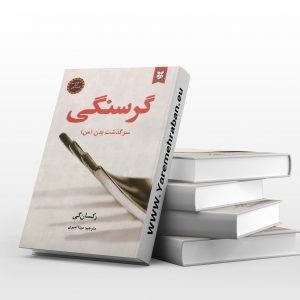

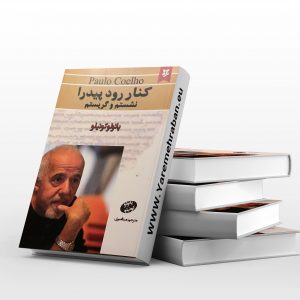

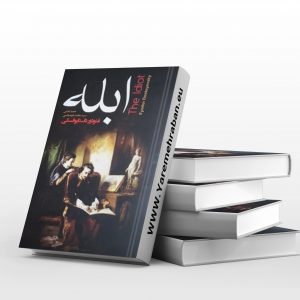

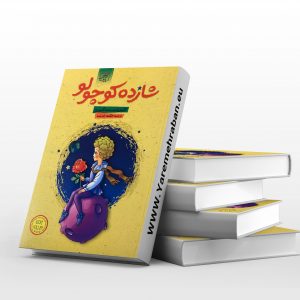


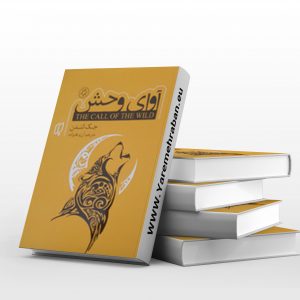

Reviews
There are no reviews yet.